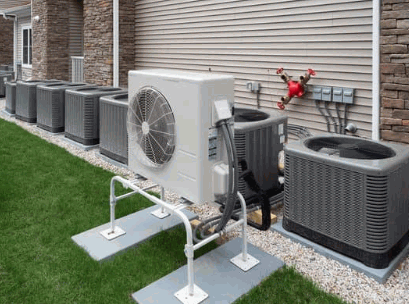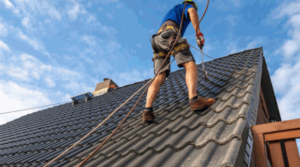Source heat pumps are becoming an increasingly popular choice for heating and cooling homes.
We will explore the different types of air source heat pumps, how they work, and the benefits they offer.
We will also discuss the factors that can affect the lifespan of these systems and signs that indicate it may be time for a replacement.
Additionally, we’ll provide tips on how to extend the lifespan of your air source heat pump.
Stay tuned to learn more!
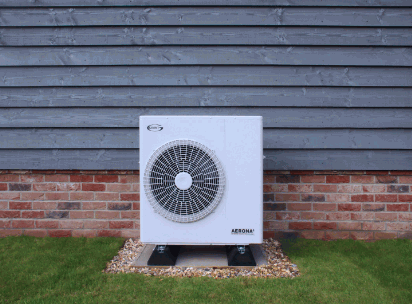
What Are Air Source Heat Pumps?
Air source heat pumps are a type of HVAC system that extracts heat from the outside air and transfers it into your home, offering an efficient alternative to traditional heating methods such as gas boilers and oil furnaces.
By harnessing the latent heat present in the surrounding air, these pumps can provide both heating and cooling functions, making them versatile for year-round comfort. The key principle is the refrigeration cycle, where the pump compresses the extracted heat to raise its temperature, enabling it to heat indoor spaces. This process is not only energy-efficient but also environmentally friendly, as it reduces greenhouse gas emissions compared to burning fossil fuels. Air source heat pumps operate quietly, require minimal maintenance, and can be integrated seamlessly with existing HVAC systems.
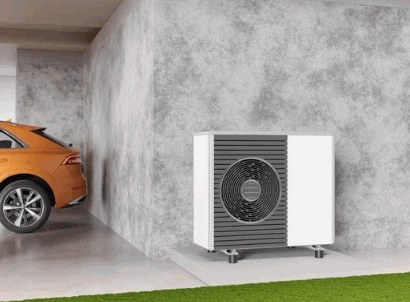
What Are The Types Of Air Source Heat Pumps?
There are two main types of air source heat pumps: air-to-air and air-to-water, each serving different heating needs and applications in homes across the UK.
Air-to-air heat pumps work by transferring heat from the outside air directly into the indoor air, providing efficient heating and cooling all year round. They are typically used in properties with good insulation and are ideal for maintaining consistent temperatures in single rooms or smaller spaces.
On the other hand, air-to-water heat pumps extract heat from the outside air and transfer it to a water-based central heating system, making them suitable for larger properties with radiators or underfloor heating. Air-to-water heat pumps are popular for their versatility and compatibility with existing heating systems, offering a renewable and cost-effective alternative to traditional heating methods.
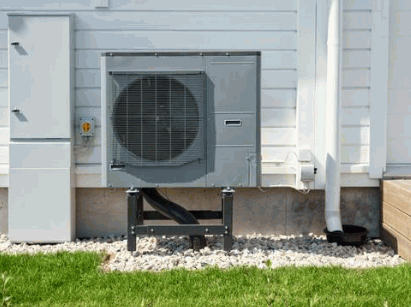
How Do Air Source Heat Pumps Work?
Air source heat pumps work by using a compressor to absorb heat from the outside air and transfer it into your home through a refrigeration system.
Once the compressor in the heat pump extracts the heat from the outdoor air, it converts it into a higher-temperature gas using the refrigeration cycle. This gas is then pumped into the indoor unit, where it releases the heat into your home through the heat exchanger. The warmed air is then distributed throughout your living space via ductwork or in-floor heating systems, effectively maintaining a comfortable temperature inside. This efficient process allows air source heat pumps to provide sustainable heating while significantly reducing energy consumption and minimising environmental impact.
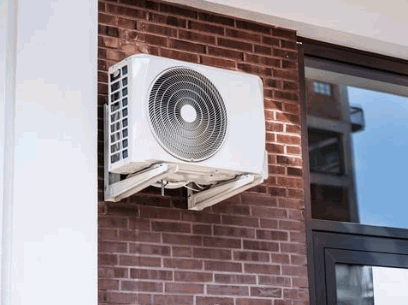
What Are The Benefits Of Air Source Heat Pumps?
Air source heat pumps offer numerous benefits including high energy efficiency, significant cost savings, environmental benefits, and low maintenance requirements, making them a popular choice for homeowners seeking sustainable heating solutions.
Energy Efficiency
The energy efficiency of air source heat pumps is one of their most compelling benefits, as they can transfer up to three times more heat energy compared to the electrical energy they consume.
This high efficiency is achieved through the mechanism of extracting heat from the outside air, even in cold temperatures, and transferring it indoors. This process is made possible by the refrigerant cycle, which enables the pump to absorb heat from the ambient air and then release it inside the building. Air source heat pumps harness renewable energy sources, such as the heat naturally present in the air, making them a sustainable heating solution. When compared to traditional heating systems like gas boilers, air-source heat pumps are remarkably more efficient and environmentally friendly.
Cost Savings
Air source heat pumps can lead to substantial cost savings on energy bills, especially with the financial incentives and grants provided by the UK government for renewable energy installations.
These pumps work by extracting heat from the outside air, even in cold temperatures, and using it to heat homes more efficiently. This process not only reduces the reliance on traditional heating systems but also significantly lowers carbon emissions, making it an environmentally friendly choice.
Environmentally Friendly
One of the primary environmental benefits of air-source heating is the significant reduction in carbon footprint compared to traditional heating systems like gas and oil boilers.
By utilising the ambient heat from the air, air source heat pumps require less energy input, resulting in lower greenhouse gas emissions during operation.
As air source heat pumps do not rely on fossil fuels directly, they play a crucial role in transitioning towards a more sustainable energy future and reducing dependence on finite resources.
Low Maintenance
Air source heat pumps require relatively low maintenance compared to traditional heating systems, with periodic maintenance check-ups ensuring their continued reliability and efficiency.
One of the key advantages of air-source heat pumps is their minimal maintenance requirements. The most common maintenance tasks include regularly cleaning or replacing air filters, checking refrigerant levels, and ensuring all components are functioning properly.
It is recommended to schedule professional maintenance check-ups at least once a year to thoroughly inspect the system, identify any potential issues, and optimise its performance.
By following these simple maintenance guidelines, air source heat pumps can operate smoothly for many years, providing efficient heating and cooling without the hassle of frequent repairs.
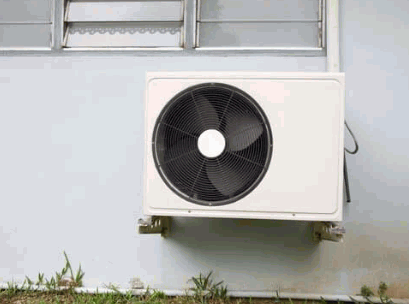
What Are The Factors That Affect The Lifespan Of Air Source Heat Pumps?
Several factors can affect the lifespan of air source heat pumps, including the quality of installation, frequency of maintenance, and the specific climate and weather conditions in which they operate.
Quality Of Installation
The quality of installation is crucial for the optimal performance and longevity of an air source heat pump system, making it essential to hire a professional installer with experience and expertise.
Professional installation ensures that the system operates efficiently, reducing energy consumption and maintenance costs in the long run. When installed correctly, an air source heat pump can provide reliable heating and cooling, contributing to a comfortable indoor environment. Quality installation also minimises the risk of malfunctions and breakdowns, enhancing the system’s durability.
When choosing an installer, look for certifications, such as those from relevant industry organisations, to ensure they meet industry standards. Seek recommendations from trusted sources and request quotes from multiple installers to compare pricing and services offered.
Frequency Of Maintenance
Regular maintenance is essential to ensure that air source heat pumps run efficiently and have a long lifespan, with maintenance contracts and periodic parts replacement playing a key role.
Having a structured maintenance schedule for air source heat pumps is crucial in preventing unexpected breakdowns and ensuring optimal performance. Regular inspections, typically recommended twice a year, can identify issues early on and address them before they escalate into costly repairs.
Opting for a maintenance contract not only provides peace of mind but also offers priority service and discounts on repairs. With a contract in place, you can rest assured that your system is in good hands and will be promptly attended to in case of any issues.
Timely parts replacement is equally important. When components wear out or become faulty, replacing them promptly can prevent further damage to the system and maintain its efficiency over the long term. By adhering to a comprehensive maintenance plan, you can potentially extend the life of your air source heat pump and optimise its energy efficiency.
Climate And Weather Conditions
The climate and weather conditions in which an air source heat pump operates can significantly impact its efficiency and lifespan, as extreme temperatures and humidity levels can affect performance.
For instance, in colder climates, the heat pump may have to work harder to extract heat from the outdoor air, leading to increased energy consumption and potential wear and tear on the system over time.
On the other hand, in hot and humid environments, the unit may struggle to release heat efficiently, resulting in reduced cooling capacity and overall performance.
To optimise the performance of an air source heat pump in different climates, it is crucial to ensure proper installation, regular maintenance, and adequate insulation of the property to minimise heat loss or gain.
Take a look: How Does Air Source Heat Pump Work In Winter
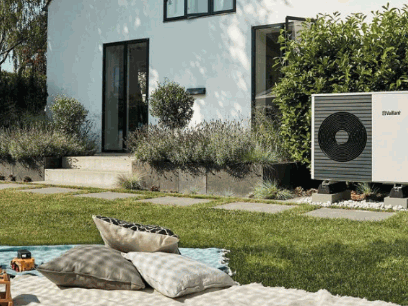
How Long Do Air Source Heat Pumps Typically Last?
Air source heat pumps typically have a lifespan of 15 to 20 years, with their durability largely influenced by factors such as maintenance, installation quality, and operating conditions.
Regular maintenance is crucial to ensure that the heat pump functions efficiently for an extended period. Simple tasks like cleaning or replacing filters and keeping the outdoor unit clear of debris can go a long way in enhancing its longevity. Investing in professional installation services from reputable providers can significantly impact the pump’s durability. Operating conditions, such as temperature fluctuations and system workload, also play a key role in determining how long the heat pump will last.
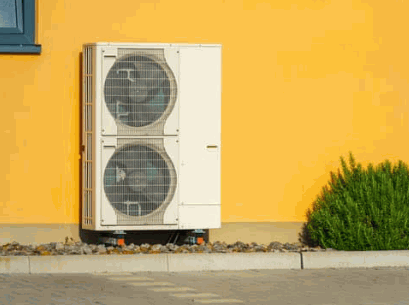
What Are The Signs That An Air Source Heat Pump Needs To Be Replaced?
Knowing when to replace an air source heat pump is crucial to maintaining an efficient heating system, with signs such as decreased efficiency, constant repairs, and the age of the system indicating it’s time for a replacement.
Decreased Efficiency
One of the most noticeable signs that an air source heat pump needs replacement is a decrease in efficiency, which can lead to higher energy bills and less effective heating within the home.
Higher energy consumption is often a red flag that something is amiss with the heat pump. When the system has to work harder to produce the same amount of heat, it can result in a spike in energy usage. This not only impacts your monthly bills but also indicates that the unit is struggling to perform efficiently.
Reduced heating performance is another key indicator of decreased efficiency. If you start noticing cold spots or inconsistent heating throughout your home, it could be a sign that your air source heat pump is not running optimally. This can lead to discomfort for occupants and a decrease in overall indoor air quality.
The impact on overall energy savings is significant when efficiency decreases in an air source heat pump. A unit that is not operating at its peak efficiency level will require more energy to provide the same heating output, thereby diminishing the potential energy savings that these systems are designed to offer. This not only affects your wallet but also contributes to unnecessary energy waste, which is detrimental to the environment in the long run.
Constant Repairs
If an air source heat pump requires constant repairs and frequent parts replacements, it may be a sign that the system is nearing the end of its useful life and should be replaced to ensure reliability.
Continuously repairing an aging air source heat pump can become costly over time, especially if the repairs are becoming more frequent. Not only can this lead to financial strain, but it can also result in inconvenience and discomfort due to potential breakdowns that disrupt the system’s functioning.
When considering the decision between replacement and continued repairs, it is essential to weigh the costs involved. While a new air source heat pump installation can come with a significant upfront investment, it can offer long-term savings in terms of reduced energy bills and fewer repair expenses.
Age Of The System
The age of the system is a critical factor in determining whether an air source heat pump needs to be replaced, especially if it has reached or exceeded its typical lifespan of 15 to 20 years.
As air source heat pumps grow older, they are more prone to wear and tear, which can lead to decreased efficiency and increased energy consumption. Over time, components such as the compressor or refrigerant may start to degrade, impacting the overall performance of the system. Regular maintenance can help extend the lifespan of an air source heat pump, but there comes a point when replacement becomes a more cost-effective solution. Homeowners should monitor the system’s performance and energy bills closely to gauge when it might be time for an upgrade.
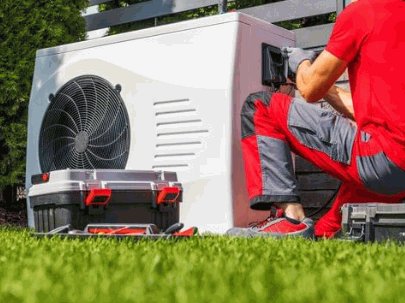
How Can You Extend the Lifespan Of Your Air Source Heat Pump?
To extend the lifespan of your air source heat pump, it is essential to engage in regular maintenance, use the system properly, and consider upgrading to more efficient models as technology advances.
Regular Maintenance
Regular maintenance, including periodic check-ups by a professional, is crucial for ensuring that your air source heat pump operates efficiently and has a longer lifespan.
During routine maintenance, technicians typically inspect and clean the coils, filters, and vents of your air source heat pump to ensure optimal performance. They also check refrigerant levels, tighten electrical connections, and calibrate thermostats to keep the system running smoothly.
Proper maintenance can prevent potential breakdowns and costly repairs, saving you money in the long run. It also helps maintain high indoor air quality by ensuring that the system is free of dust, debris, and mould, which can impact your health.
Proper Usage And Care
Proper usage and care of your air source heat pump, such as avoiding excessive strain on the system and keeping the outdoor unit clear of debris, can significantly extend its lifespan.
Regular maintenance tasks like cleaning or replacing filters as needed, ensuring proper insulation of your home to minimise heat loss, and scheduling annual professional inspections can all contribute to the efficient functioning of your air source heat pump. It is crucial to pay attention to the thermostat settings, optimising them for energy savings without compromising comfort. During extreme weather conditions, consider adjusting the temperature gradually to prevent sudden spikes in the system’s workload, thus promoting longevity.
Upgrading To A More Efficient Model
Upgrading to a more efficient model can not only enhance the performance of your air source heat pump but also contribute to greater energy efficiency and reduced operating costs.
One of the key benefits of newer air source heat pump models is the significant improvement in energy efficiency they offer. These advanced models are designed to operate more effectively, translating into lower energy consumption and reduced utility bills. With technological advancements such as variable-speed compressors and smart thermostats, the newer pumps can adapt to changing heating and cooling needs more efficiently, ensuring a comfortable environment at all times. By investing in a modern air source heat pump, you not only upgrade your home’s heating and cooling capabilities but also pave the way for potential cost savings in the long run.
